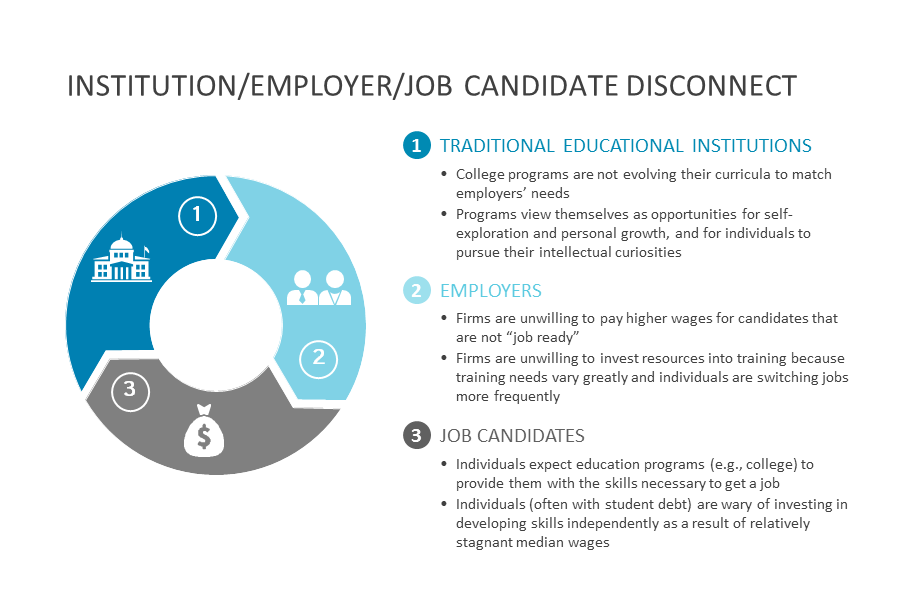The crucial question for investors, boards and CEO is who is right? If there is a shortage, there should be an opportunity to develop new products and services that help relieve it.
We’ve concluded that the economists have it wrong. While we agree that that the law of supply and demand applies, we think they have taken too narrow of a view by focusing only on wages. Rather, we think the correct application of the law is looking at the total cost of obtaining the required labor = (search + evaluation/screening) + wages.
So how does this apply to hiring talent? It’s clear that individuals produce labor for wages. But where’s the distribution? While search consultants can play the role of a distributor in hiring for senior level positions, most of the distribution function (search + evaluation/screening) is performed in-house and is thus difficult to observe from the outside. We’ve conducted extensive research that indicates that companies are spending significantly more time on these critical hiring activities. And they are relying on a wide range of external providers of services, data, and software solutions to help them become more effective and efficient.
Our interpretation is that firms have made the logical conclusion that investing in capabilities that give them an edge in hiring relative to other employers is a more sustainable strategy than bidding up wages
So let’s apply Occam’s razor and fit all the pieces together to make sense of the landscape: employers are facing a skill shortage; they aren’t blindly bidding up wages because that isn’t a differentiated and sustainable strategy; the cost of hiring is increasing as they are investing in internal capabilities to get an edge relative to other employers competing for those skills in short supply; and, they are relying on service, data and software providers to help them hire more effectively and efficiently.
In our new report, we lay out in more detail the opportunities that we see.


